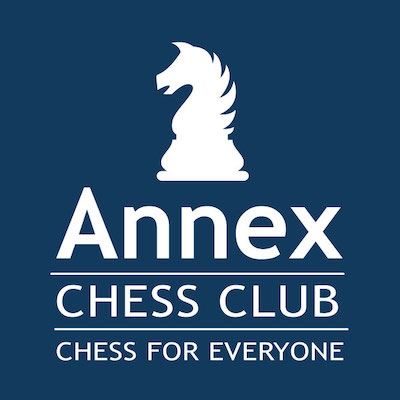ANNEX CHESS CLUBChess For Everyone! |
| Chess has the characteristics of both a mental game of skill (where an individual’s mind is used as a tool to achieve a favourable game result) and a physical sport (where continuous focus, concentration and endurance over a period of time may affect the individual performance of each player). Wikipedia defines a game of skill (or wits) as “a game where the outcome is determined mainly by mental or physical skill, rather than by chance.” A game of chance is one where its outcome is strongly influenced by some randomizing device (e.g. dice). While a game of chance may have some skill element to it, chance generally plays a greater role in determining its outcome (i.e. who won and who lost the game). Wikipedia goes on to say that a game of skill may have some elements of chance, but skill plays a greater role in determining its outcome. On its first level, chess is a game of skill. There are no randomizing devices used and a successful outcome is essentially determined by one player seeing and making better piece moves than the other player. Chess is thought to be pure logic, however, perfect chess is essentially beyond human capability. Luck plays a part in any chess position where one or both players are not in control of the complications. Chess is essentially a simulation gamespace that uses an 8 x8 matrix (the chessboard) and a set of game pieces (kings, queens, rooks, bishops, knights and pawns) that have predefined attributes for movement, attack and defense. There are a number of rules that define how the simulation gamespace works and players must first learn those rules in order to participate in the gamespace. In its second level, chess is a sport. Here is a link to a nice article and video that explains 5 reasons why this is so. In summary, the main reasons are as follows:
If one accepts the premise that chess is a sport, then this has important implications with respect to obtaining government funding in many countries. See also our webpage about Chess Improvement and physiological factors that impact chess performance. Rules and Conventions The rules of chess essentially cover the following topics:
In some scenarios, players will add mutually accepted conventions (or in competitions additional established rules) for chess play, which also need to be learned:
The details relating to the list above are rules and conventions that every chess player needs to learn. When the beginning chess player is younger in age, the language used and explanations given as chess instruction tend to be simpler. Regardless of age, through some practice and repetition, the beginning student quickly learns how the game of chess works and can then handle the basics and soon play a complete game. A great way to see if a new player really understands the rules of chess is to see if that player can clearly explain them to someone else. Here is a link to FIDE's Official Rules of Chess, from the FIDE Handbook, effective January 1, 2023. Starting Videos Chess has a long and interesting history and a new player should invest some time to understand it. Here are a couple of interesting Youtube videos on Chess History to get you started.
Here are four useful videos to get you going on learning the rules of chess.
Next StepsThere are many other excellent websites and online videos to help the new player learn more about chess, including basic openings, strategy, tactics and endgames. You might also consider taking one or more of our chess classes, whether in an in-person or online learning format. Many students prefer to learn chess from a live instructor rather than by watching a video. Certainly, much of the initial joy of playing chess for a new player comes from knowing the rules, and then successfully applying them to independently control their pieces on the board in a rules-legal manner. Vive l’independence. |



